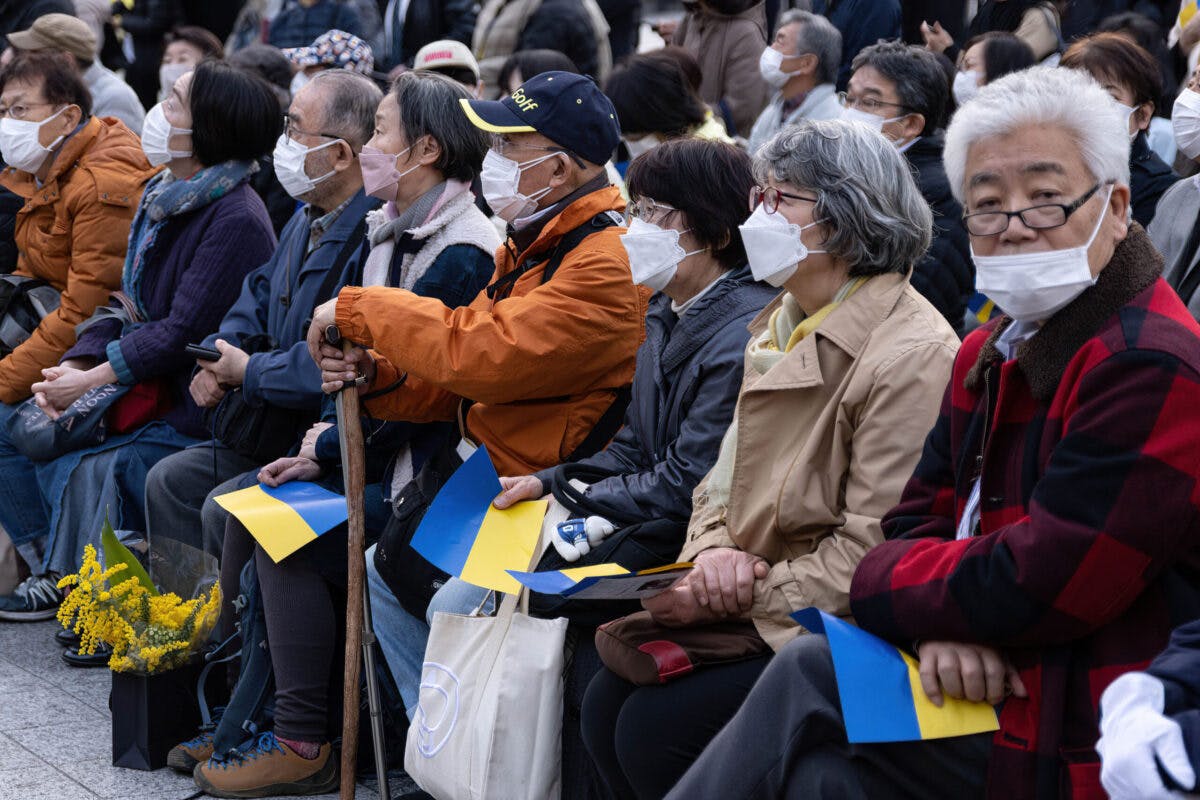Marriage Crisis: Japan’s Birth Rate Falls To Record Low Despite $25 Billion Gov Intervention

Japan’s population plummeted for the 14th year in a row in 2024, declining by nearly 900,000 people despite massive government spending aimed at encouraging childbirth.
New data released on Monday by Japan’s Internal Affairs Ministry shows the number of Japanese nationals declining by 898,000, marking the steepest annual decline since authorities began keeping records in the 1950s.
Roughly a quarter of the decline came in the 15-64 age demographic, which fell by 224,000 in a severe blow to the nation’s tax base, according to Bloomberg.
The country’s fertility rate in 2023 stood at just 1.2 expected births per woman over her lifetime, far below the 2.1 needed to maintain a stable population, reflected in Japan’s child population declining to a record-low 11.2% of the population, 13.8 million, after a decline of 343,000 last year.
The sharp demographic downturn comes despite the Japanese government approving a $25 billion package in late 2023 to expand child allowances, improve childcare, and increase education support, only for birth rates to plummet further.
Former Health Minister Keizo Takemi described Japan’s demographic outlook as “critical,” warning the country only has until the 2030s to reverse course, per Newsweek.
Surveys show many younger Japanese are reluctant to marry or have families, discouraged by bleak job prospects, rising living costs outpacing salary growth, and corporate cultures incompatible with dual-income parenting.
The nation’s population is projected to shrink by approximately 30% to 87 million by 2070, when four out of every ten Japanese will be 65 or older, potentially placing a crippling strain on Japan’s extensive welfare state, according to the Associated Press.
Experts like Ekaterina Hertog, an associate professor at the Oxford Internet Institute and Institute for Ethics in AI who researches the societal impact of Japanese labor practices, are concerned that monetary incentives simply won’t be enough to increase fertility simply due to how Japanese culture has developed in the modern era.
“Marriage trends in Japan and South Korea are significantly shaped by economic conditions and their intersection with gender roles,” she told Newsweek.
The number of annual marriages on the island nation dipped below 500,000 for the first time in 90 years in 2023.
Hertog explained that Japanese women still have the expectation of prospective husbands fulfilling the “traditional male breadwinner” role, causing many lower-paid men to postpone marriage or skip it entirely.
“Another important set of factors are family norms, that prescribe children’s support of elderly parents and the difficulty of negotiating them in societies which have had low fertility rates for decades,” she added.
Ryuichi Kaneko, demographer and professor at Meiji University, told the Asahi Shimbun newspaper: “I believe one of the reasons Japan’s declining birthrate has become especially severe is that, in the postwar period, the country built a society that prioritized economic activity to an extreme degree.”
“We believe the declining births has not been effectively controlled,” Chief Cabinet Secretary Yoshimasa Hayashi told reporters regarding the new demographic data, according to the Associated Press.
This trend has been reflected in other Southeast Asian countries post-World War II, with China, South Korea, and Taiwan all experiencing similar if not more severe declines in fertility following mass urbanization, demanding work cultures, and changing attitudes toward marriage.
Similar trends are emerging in the United States, where fertility rates have dropped to 1.67 births per woman — also below the 2.1 replacement level — despite various government incentives for families.
Both nations are discovering that financial packages alone may be insufficient to overcome deeper cultural and economic factors affecting family formation decisions.
With fewer working-age citizens supporting a growing elderly population, Japan’s traditional social welfare systems face unprecedented strain — creating economic challenges that many other developed nations may soon confront.
Originally Published at Daily Wire, Daily Signal, or The Blaze
What's Your Reaction?
 Like
0
Like
0
 Dislike
0
Dislike
0
 Love
0
Love
0
 Funny
0
Funny
0
 Angry
0
Angry
0
 Sad
0
Sad
0
 Wow
0
Wow
0













































































